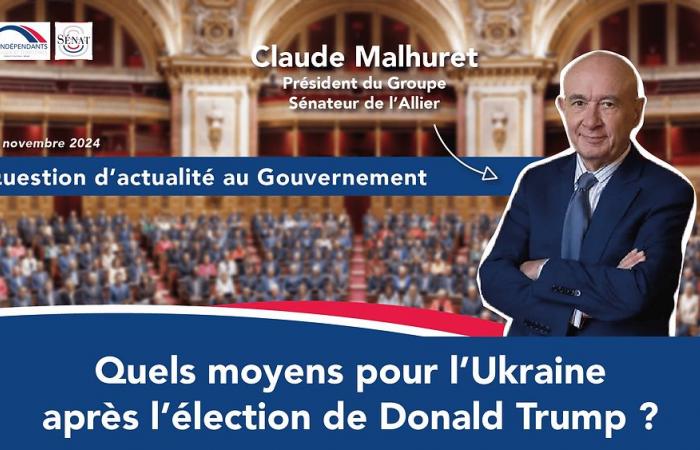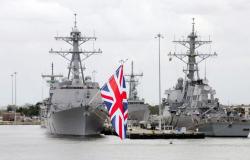Current question to the Government
Question from Claude Malhuret, Senator of Allier:
“Zelensky, you are 38 days away from losing your benefits.”
This infamous post from Trump's son on Instagram confirms all the fears. Europe was only a second-tier player behind the United States in a conflict which, however, is taking place on its soil. She is now on the front line, she has not prepared for it and has no overall strategy.
For years, the Americans have been urging us to take on a greater share of the security burden. We continued to believe that their umbrella was eternal. Today we are alone or almost alone in the face of enemies who threaten our projects, our values and above all our security.
The arrival of 12,000 North Korean soldiers in Europe, after massive support from China and Iran, marks a turning point in the war.
France's reaction? Summon the general delegate of North Korea to convey, I quote, “our disapproval”. THANKS.
Mr. Minister, beyond the broad phrases about our unwavering support for Ukraine, I ask you for concrete answers to concrete questions.
If the United States and Russia choose to negotiate together, and over our heads the carving up of Ukraine and the future of Europe, how do we plan to react? If the American withdrawal is confirmed, do we plan to increase our support for Ukraine, and by what means?
Do you support the commitment of Friedrich Merz, likely future German chancellor, to finally allow Ukraine to strike the bases from which the bombs which destroy the country come?
Finally, what are the means and timetable for making Europe, after 40 years of denial, the military power it should never have ceased to be?
There is nothing more dangerous than believing that we are not at war with dictators who are at war against us and who say so.
However, since February 22, we have devoted 2 euros, the equivalent of a coffee, per month per French person to the defense of Ukraine.
In 1939, Raymond Aron said: “I believe in the victory of democracies, provided they want it.” Today, facing the dictators of the 21st century, do we really want this victory?
Response from Jean-Noël Barrot, Minister for Europe and Foreign Affairs:
Ladies and Gentlemen Senators,
Mr President Malhuret,
A thousand days after the start of his special operation in Ukraine, Vladimir Putin has miserably failed to achieve his war goals. He sacrificed hundreds of thousands of Russian lives in a war whose intensity has no precedent in our recent history.
He was guilty of acts of deportation of children from Ukraine which earned him an arrest warrant from the International Criminal Court. And he is the first leader of a permanent member country of the United Nations Security Council to be in this situation.
And it has suffocated its economy which is today on the brink of collapse, to the point of forcing it to kneel before North Korea in a painful attempt to seek reinforcements to continue to pound Ukraine.
A thousand days after the start of this unjustifiable war of Russian aggression, I believe that Donald Trump is too wise to abandon the Ukrainians in the open. This would endorse the largest territorial annexation in our history for 75 years. This would enshrine the law of the strongest and precipitate the international order into chaos.
This would forget that no just and lasting peace can be concluded behind the backs of the Ukrainians and over the heads of the Europeans.
Because, a thousand days after the start of the war, the support of France and the support of Europe will not weaken, whatever the decisions of the American administration.
In a few days, Ukrainian soldiers who have been trained and equipped on national territory will reach the Ukrainian front. We will go with Sébastien Lecornu and a certain number of parliamentarians to visit them tomorrow.
In a few weeks, the Ukrainians will receive 50 billion euros contributed by the G7 countries, their allies, and financed by windfall income from frozen Russian assets.
And in a few months, it will be French mirages that will fly in the skies of Ukraine. It is up to the Ukrainians to decide on the conditions and timing of opening peace negotiations, and it is the responsibility of their allies to allow them to enter these negotiations from a position of strength.






